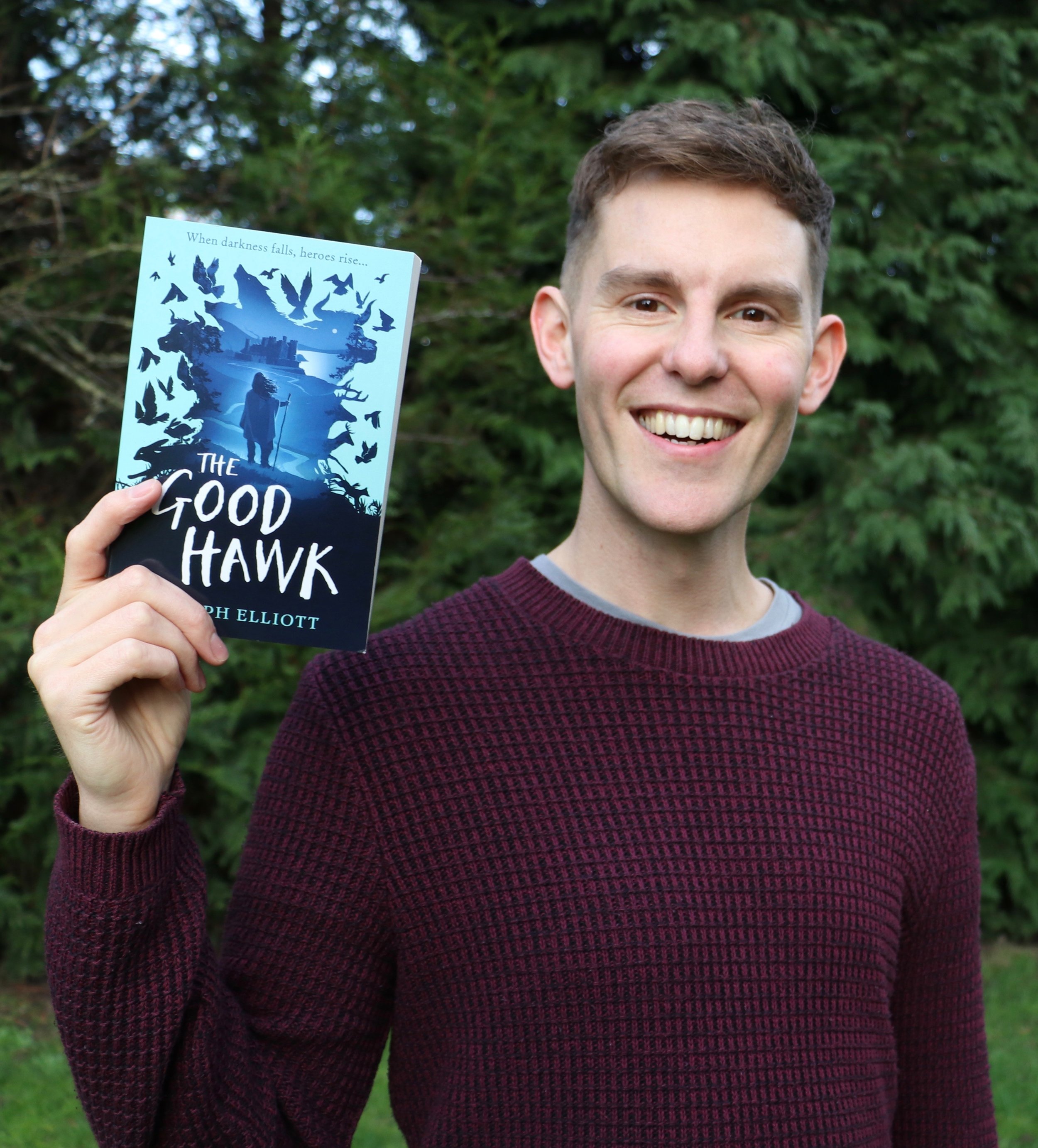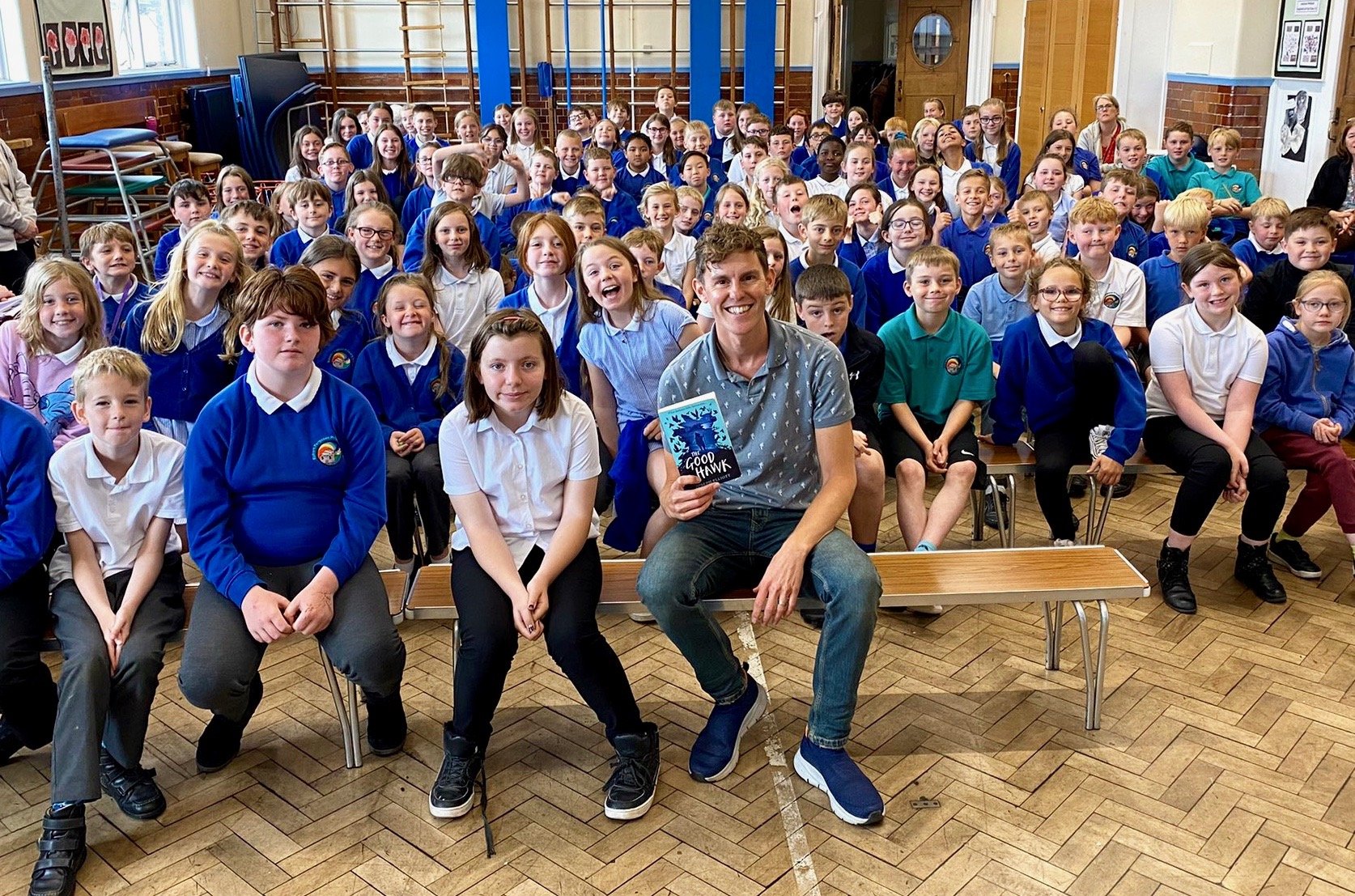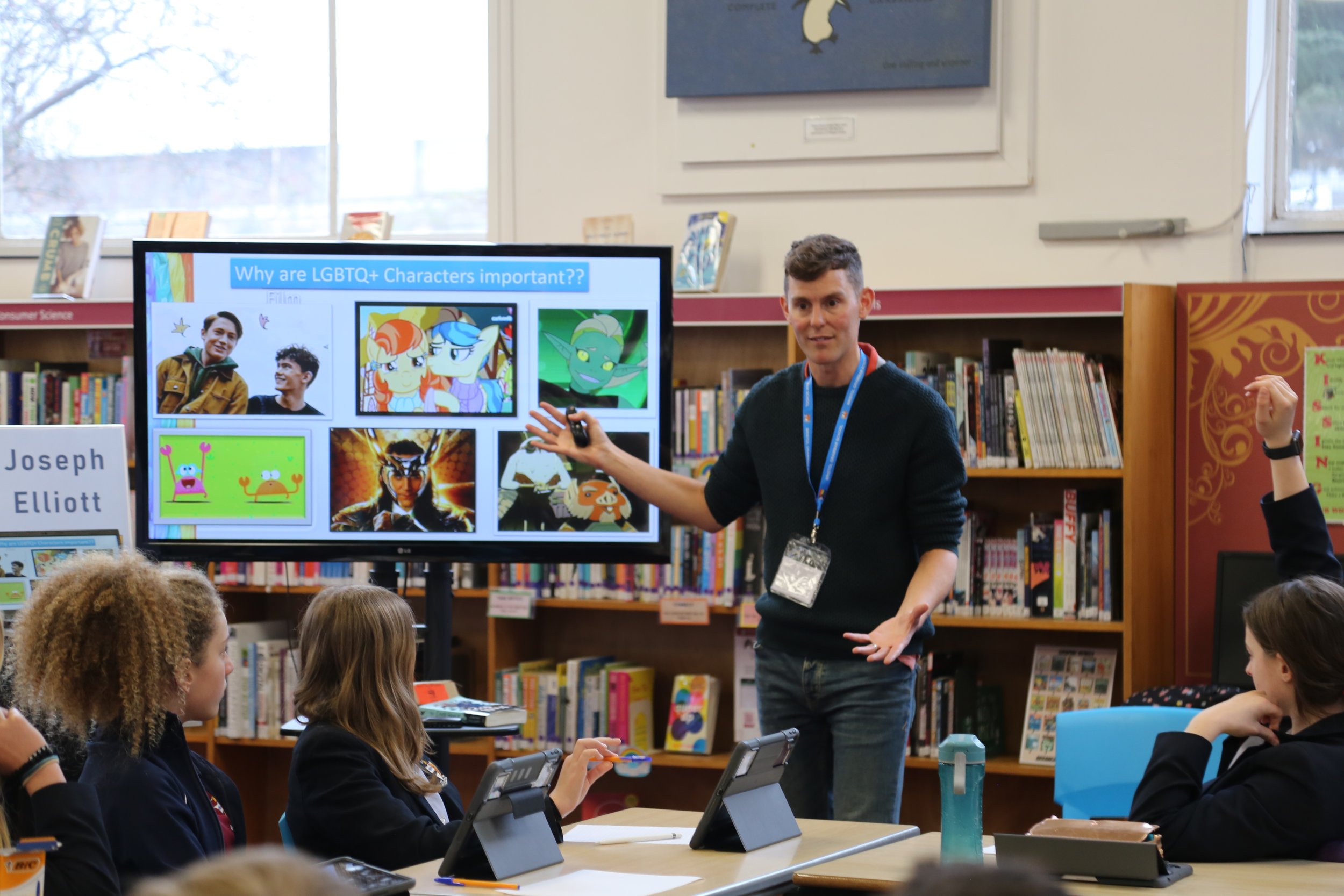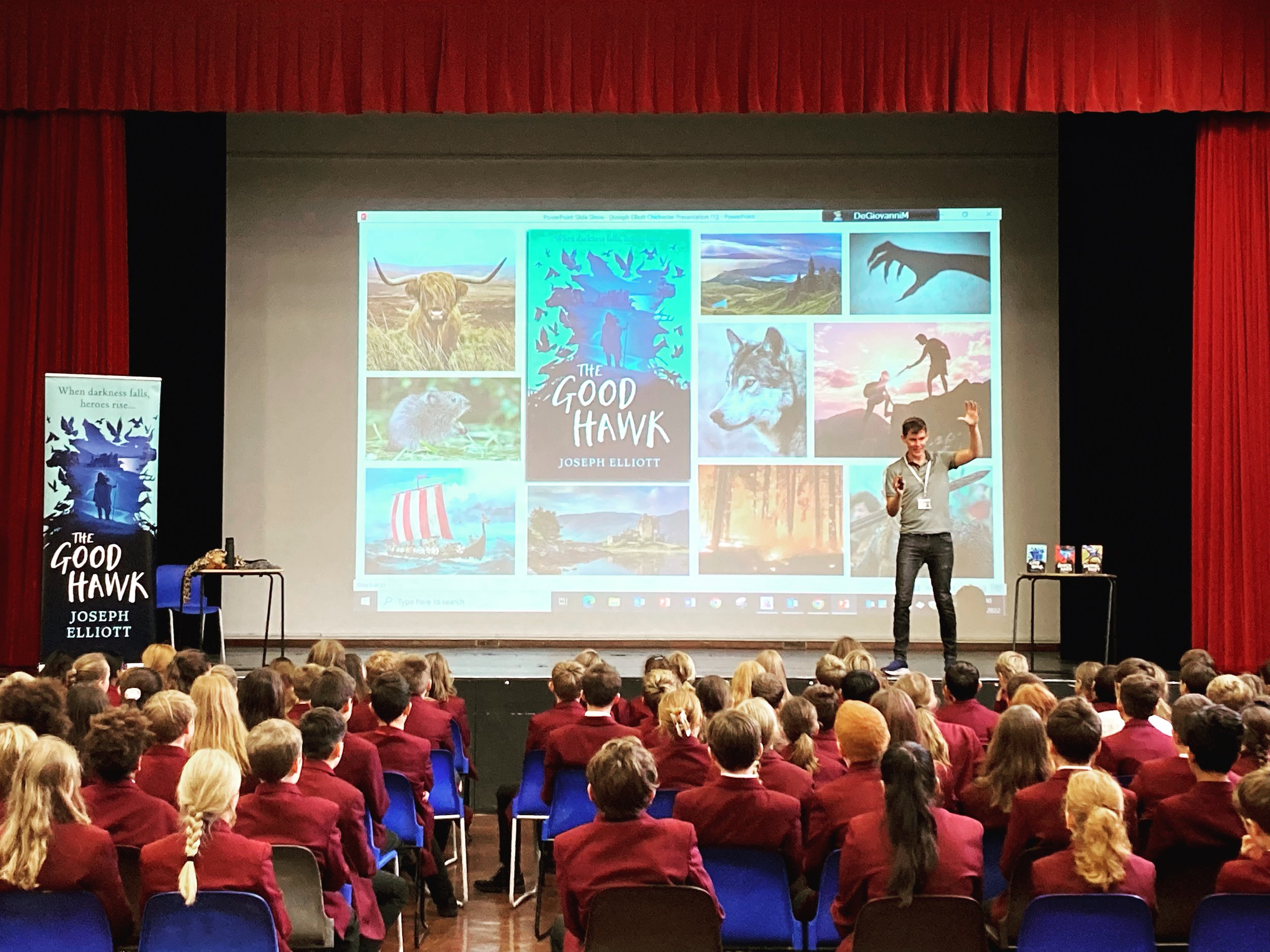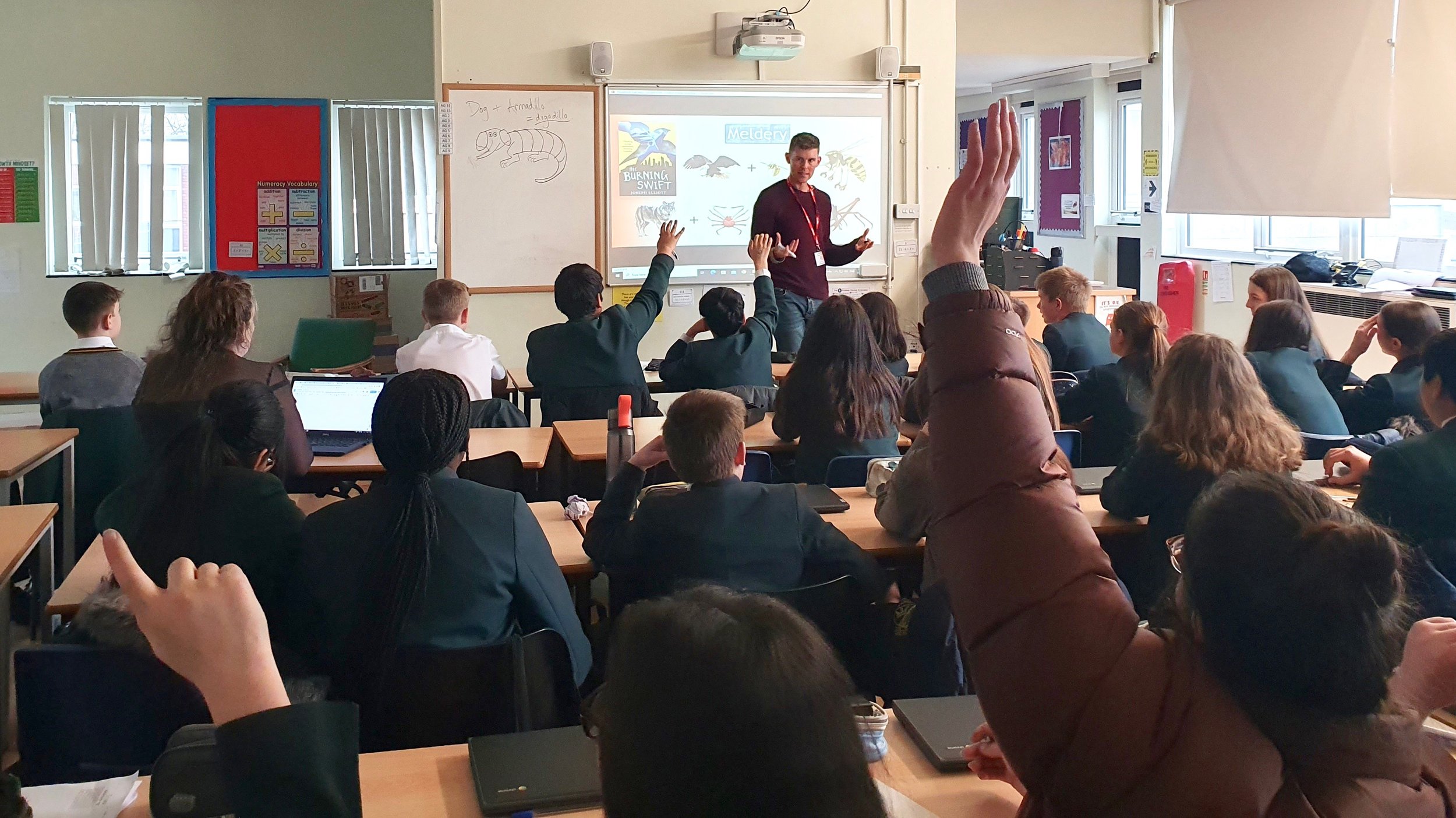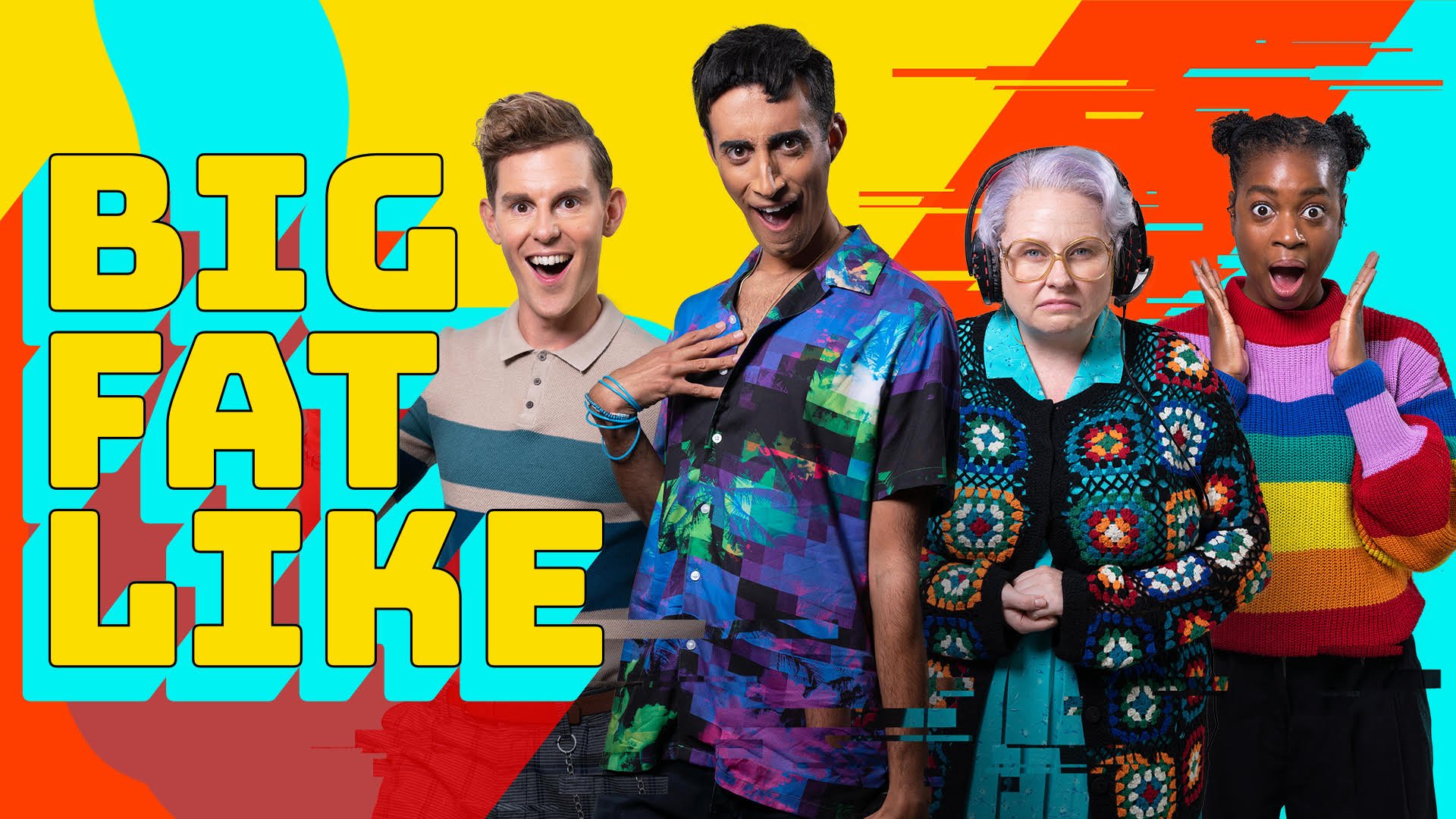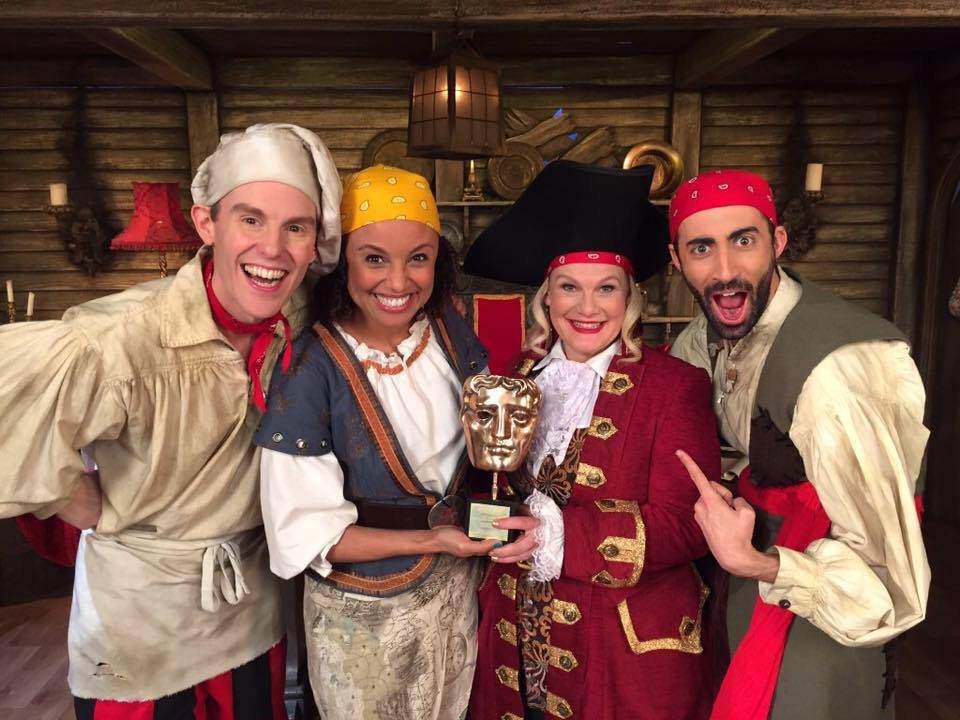September - Artist of the Month – Joseph Elliott
Our September ‘Artist of the Month’ is author Joseph Elliott.
About Joseph Elliott.
For the last fifteen years, Joseph has worked as an actor, predominantly in comedy and children’s television. He is best known for playing ‘Cook’ in the BAFTA-winning CBeebies pirate gameshow, Swashbuckle, and for co-creating and starring in CBBC’s smash-hit comedy show, Big Fat Like. He is also part of the scriptwriting teams for Swashbuckle, Kidz Bop, The Amelia Gething Complex, Class Dismissed, and Horrible Histories.
Joseph’s debut novel, The Good Hawk – an epic fantasy adventure set in a mythical version of Scotland – was published by Walker Books in 2020. It was nominated for the CILIP Carnegie Award, longlisted for The Highland Book Prize, and won Best Middle Grade at the 2021 Audie Awards. It was also named a 'Book of the Month' by The Guardian and a 'Book of the Year' by The Times. It was followed by the sequels The Broken Raven and The Burning Swift, which complete the Shadow Skye trilogy. Joseph is also the author of the short story 'Bag For Life', which was featured in the critically-acclaimed Book of Hopes and turned into a short film by Reckless Kid Films.
What a visit from Joseph entails
Joseph offers author talks and creative writing workshops, which can be combined however you like, to make a visit bespoke to your requirements. All visits include a free meet-and-greet/book signing, and the school will also receive a free signed poster and set of signed bookmarks. Joseph works mainly with Key Stage 2 to Key Stage 5 however, his author Talks are most suitable for years 6, 7 and 8.
Author Talk
Joseph’s author talks are designed for larger groups in an assembly-style setting where he talks about the inspiration behind his books and what life is like as an author and actor. Joseph discusses the themes of difference and acceptance, insights into the publication process along with writing tips and the importance of reading. Joseph will include an interactive quiz for the students, followed by a reading from The Good Hawk before rounding off with a Q&A session.
Creative Writing Workshops
Joseph offers a selection of writing workshops which are delivered in a relaxed and informal environment.
Unlocking Creativity: Magical Beasts
Joseph starts by revealing more about his process as an author, and the ways in which he approaches creativity. He then invites pupils to do some subconscious writing to “clean the brain”, followed by a group exercise creating hybrid creatures, using examples from his books as a springboard. The pupils will then create their own magical beast, focusing on how best to describe them. To end the session, pupils will write a short piece of creative fiction featuring their creature, focusing on writing for pleasure without trying to ‘get it right’.
The Importance of LGBTQ+ Characters
This workshop promotes pride, diversity and inclusion. It is perfect for a dedicated Pride/LGBTQ+ group if you have one (and it’s fine to include pupils from different years), but also works well for any group of students. The session starts by exploring the representation of LGBTQ+ characters in film, TV, and literature, exploring why this representation is important. Then, using the LGBT characters in Joseph’s books as a starting point, he goes into depth about how to create fully-rounded characters when writing fiction. Using a provided prompt-sheet, the pupils will then create their own LGBTQ+ character, before writing them into a short piece of creative writing, with time at the end to read them out to the class.
Scriptwriting Masterclass
This session begins with Joseph going into more detail about his history as an actor, author and scriptwriter, advising on how to pursue a career in any of those disciplines. Various aspects of scriptwriting are then covered including conflict, character, and how to correctly format a script. He will then discuss how to create convincing dialogue, before tasking pupils to create a short script from a superhero movie, which they can then read out (or even perform) if they wish to. Perfect for English and Drama students, and can be adapted to suit any year group from KS3-KS5.
You can read more about Joseph and his school visits here
Interview with Joseph Elliott
Where did the idea for Shadow Skye come from?
The series started with Agatha – one of the two protagonists in the books. She popped into my head fully formed, and I could hear her voice so clearly. She was looking out to sea as the wind blew through her hair, and I knew straight away that she was bold, fearless, and loyal and that she also happened to have Down syndrome. She was my heroine, and the whole series unfolded as I told her story.
What is your research and writing process?
I’m not a big planner, because I find I’m at my most creative whilst writing, and love the spontaneity and freedom that comes from not knowing what might happen next. If I get to a part that requires a bit more thought, I pause and dive into the research at that point. The best thing about writing fantasy is that your imagination has free reign to go wherever it likes.
What is your favourite thing about visiting schools?
I love meeting the pupils! They always get so excited when they find out what TV shows I was in. And the Q&A is always my favourite part, as kids always come out with such great (and unexpected!) questions.
How did you find acting? Do you still get asked questions about TV work during your author visits?
I love being an actor, and feel so lucky that I get to do the two things I enjoy most in the world: acting and writing. There are always a couple of questions about my TV work, which I’m always happy to answer; it’s nice for the pupils interested in acting/TV production to ask about that side of things too. Most people want to know what the slop on Swashbuckle was made out of!
How easy did you find learning lines when you were an actor? Does it mean you now have a good memory?
No, I’ve got a terrible memory! I think all the line learning has pushed all the precious memories out… My short-term memory is good, so I usually cram lines the night before. But ask me what I did last week, and I haven’t got a clue.
How different is scriptwriting to working on a novel?
Well, it’s a lot shorter, so definitely easier in that respect. And it’s nearly all dialogue, so much more immediate. But you don’t get to create the whole world like you do a novel, and that’s the creative aspect I enjoy the most. Also, with scriptwriting, producers and actors are allowed to change your words later down the line, so you have to hand over control, which can be hard. With novel writing, you always get the final say.
What are your feelings on using fiction to teach young people about serious topics?
I think fiction is an incredible tool for doing that, and one of the best ways young people can learn. Although I never set out with an agenda to teach anything specific, there are lots of serious topics discussed throughout the books, including colonisation, disability, homophobia, mental health, and toxic masculinity. Reading not only makes young people smarter, but also helps them develop empathy, which is certainly what I hoped my books would do, by challenging preconceptions about what it means to have a disability or to be LGBTQ+.
Why is representation so important within the media?
Everyone – especially young people – deserves to see themselves reflected in the books they’re reading and the TV shows they’re watching. Representation makes us feel seen and lets us know that our existence is important. Diverse representation also spreads a message of tolerance and acceptance, and highlights how great we are as a species because of our differences.
What impact did working in a special educational needs school have on you and your books?
It had a huge impact. The children I worked with taught me so much every day and constantly made me reassess what I thought I knew about what it means to have a disability. My hope is that Agatha is doing the same to anyone who reads her story.
How do you involve the more reluctant readers and writers in sessions?
My sessions are for everyone, and I always aim to keep them fun and light. My presentations include interactive quizzes, drama enactments, and a deep dive into how a book is physically made for anyone more technically-minded. And the main emphasis in my workshops is on writing for pleasure, inviting pupils to do it just for themselves. I encourage them to ‘get it wrong’, creating a relaxing and informal environment that’s supportive of all abilities.
Why do you champion reading? What difference do you feel it can make?
Reading is EVERYTHING! It makes you smarter, more empathetic, more creative, more imaginative, generates positive mental health… I could go on and on. I’ve always been a big reader and know what an impact it has had on me, so want to share that message of positivity.
Do you feel more young people today are interested in having open discussions about bullying and hate crimes? Or has the polarisation portrayed in the media made it more difficult to facilitate these talks in schools?
In general, I think pupils are quite up for discussing it, especially in smaller groups and the right environment. It’s essential we’re having these types of discussions with young people in our increasingly polarised world.
Do you think you can you enjoy a well written book if the author has views you disagree with?
It’s important we listen to and try to understand other people’s points of view, but if an entire book was centred around something I fundamentally disagreed with, I doubt I would enjoy reading it.
We are huge supporters of libraries and are the sponsors of the School Librarian of the Year Award. What positive experiences have you had in libraries/working with librarians? At a time of huge cuts it is so important to declare support for these institutions. Why should society value libraries?
If you explained the concept of a library to an alien – a place filled with books where you could go in and borrow whatever you liked FOR FREE (as well as all the other services they provide) – it would sound like some sort of utopia. It’s incredible they exist, and all too easy to take them for granted. And librarians are like magical creatures who have this whole wealth of knowledge and know exactly which books to recommend, at a time in children’s lives when being handed the right book can totally change their life for the better.
What has been your proudest career moment so far?
Visiting the book factory where they made The Good Hawk and seeing the machines churn out hundreds of books a minute was definitely a real pinch-me moment.
Which book/series made a lasting impression on you as a child?
The first series I remember loving was The Animals of Farthing Wood by Colin Dunn. I saved up my pocket money and bought every book in the series and devoured them all.
What is your next career goal?
I’d love to have one of my books adapted one day – for TV, radio, film or theatre. That would be awesome.
Quick Fire
Board games or computer games?
Board games. I’m obsessed.
Early riser or night owl?
Early riser. Sometimes I wake up at 3am and, if I can’t get back to sleep, I’ll just get up and start writing.
If you could hop around in time, would you prefer to only be able to go backwards before returning to the current date, or only pop forwards before returning?
I’d visit the past; I don’t like spoilers.
What is scarier: a dragon that can only breathe squirty cream, or a cranky capybara that can breathe fire?
The dragon. I’m vegan – get that cream away from me!
Best ice-cream flavour?
Triple chocolate with extra chocolate.
If you were Prime Minister for the day, what law would you introduce?
Free ice cream for all. (And more finding for libraries, of course.)
Arrange for Joseph Elliott to visit your school
To make an enquiry about Joseph Elliott, or any of the other authors, poets & illustrators listed on this website, please contact us as follows
UK visits
Email: UKbookings@caboodlebooks.co.uk
Or contact Head of UK Visits, Yvonne - 01535 279850
Overseas Visits
Email:Overseasvisits@caboodlebooks.co.uk
Or contact Overseas Manager, Robin - +44(0) 1535 279853

